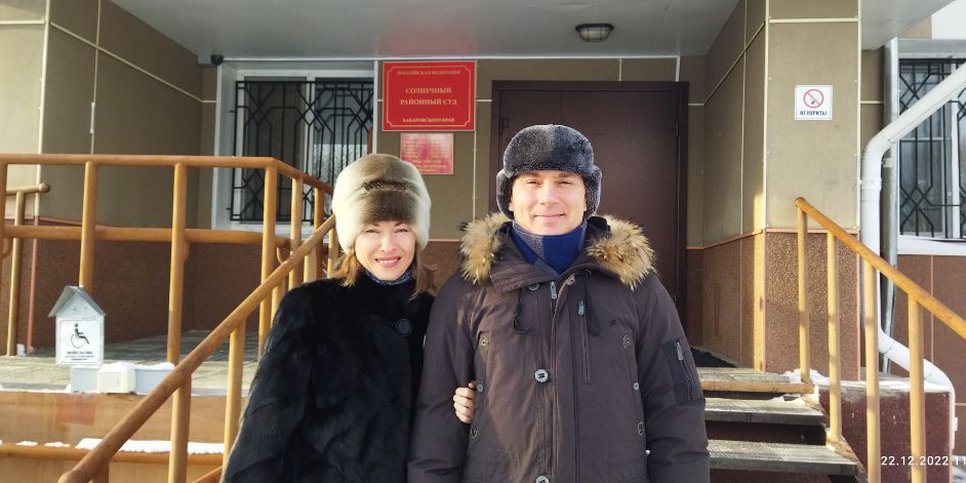“I Was Convicted for My Faith in Jehovah God.” An Appeal in the Khabarovsk Territory Approved the Verdict Against Boris Yagovitov
Khabarovsk TerritoryOn December 22, 2022, the board of judges of the Khabarovsk Regional court chaired by Maksim Vergasov approved the sentence of Boris Yagovitov—5 years suspended with a probationary period of 3 years and restriction of freedom for 1 year and 7 months. The court considered it extremism to have conversations about the Bible.
The decision of the court of first instance was generally left unchanged, the court only made a small technical clarification to the operative part on the appeal of the prosecutor—the sentence of imprisonment is considered suspended, and the sentence of restriction of freedom is not suspended.
Yagovitov filed an appeal against the verdict; he does not agree with the verdict. He stated: “In fact, I was convicted for my faith in Jehovah God and for attending meetings for worship; I am judged because I love to read the Bible and discuss it with friends, because I love God and people, do good deeds and have lived this way for half of my life. And I will continue to live this way because it's my choice, my personal beliefs, and it is my faith.”
Officers for the Center for Combating Extremism began operational search measures against Yagovitov back in 2018. In May 2021, the Investigative Committee initiated a criminal case against the believer. Boris Yagovitov and his wife, Natalya, were detained and taken for interrogation while they were walking in the city park in Komsomolsk-on-Amur. As a result, the believer spent 7 months under house arrest and 9 months in detention. In December 2021, the case went to court. As evidence of Yagovitov's "crime", the prosecution cited the testimony of a certain Baleichuk, who, after several conversations with the believer, approached the FSB and the Ministry of Internal Affairs and agreed to inform them about the activities of the believers. The court found the believer guilty of extremism only because he had met with his friends to read the Bible.
The ruling of the European Court of Human Rights in the case of Taganrog LRO and Others v. Russia of June 7, 2022 states: “Respect for religious diversity is undoubtedly one of the most important problems that one has to face today; for this reason, authorities should perceive religious diversity not as a threat, but as a source of enrichment of experience. In an effort to suppress the religious activity of Jehovah's Witnesses in this way, the Russian authorities did not act in good faith and violated the duty of the state to observe neutrality and impartiality in relation to the religion of Jehovah's Witnesses”.

